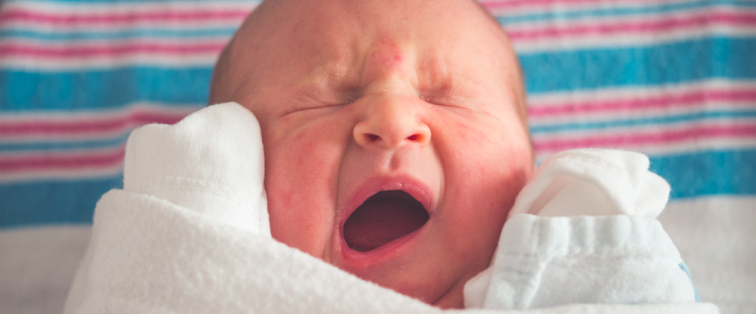Why Sleep is Important and What Your Family Needs to Know for Back to School Routines

Back to school often means a return to set schedules, busy days and packed after-school nights. With earlier mornings and later evenings, sleep can take a backseat as kids and parents get back into school-related routines. Yet, optimal sleep is critical for healthy development throughout an individual’s life—especially during childhood and adolescence.
Insufficient sleep—getting less sleep than is recommended—is linked to poor social-emotional, cognitive and physical health functioning in all stages of a child’s life. For example, one study found that toddlers with a shorter sleep duration were more likely to have emotional and behavioral problems at five years old. In older kids, experimental research showed that, compared to when they obtain a healthy amount of sleep, adolescents who are sleep deprived are more likely to be irritable during the day and to struggle with attention in a classroom-like setting.
Adequate sleep is also particularly important for academic success. Researchers found that kindergarteners who were educationally unprepared for their transition to first grade were also more likely to have sleep problems. And another study shows that getting just one hour more of sleep per night can lead a school-aged child to improved academic outcomes.
Unfortunately, the 2014 National Sleep Foundation Sleep in America poll revealed that more than half of youth between the ages of 6 and 17 years obtain fewer than nine hours of sleep per night—less than national guidelines recommend for most youth in this age group. Furthermore, the proportion of children and adolescents obtaining insufficient sleep only increases with age, which can set up individuals for a lifetime of poor sleep habits and related health consequences.
As a psychologist who sees children and their families struggling with sleep and other behavioral problems, I stress to every family I meet with the importance of healthy sleep habits for the entire family. There are four main evidence-based recommendations that I make:
- Aim to get enough sleep each night: You may know that adults should get at least eight hours of sleep each night, but did you know that national guidelines recommend children ages 6 to 12 get 9-11 hours of sleep nightly? For young children, starting preschool or kindergarten may mean changing or giving up naptime. Try to extend nighttime sleep when naptime is no more. And for school-aged children, research shows that parent-set bedtimes (I recommend before 9:00pm) are associated with better sleep outcomes. Leading up to the school transition, parents can gradually start waking children earlier and setting earlier bedtimes to ease in to the school schedule.
- Follow a consistent bedtime routine: Research found that having a bedtime routine is associated with better sleep across childhood. A bedtime routine should ideally last no longer than 30-40 minutes and consist of two to four positive and calming activities, such as washing up, changing into pajamas and reading or talking about the day. In a recent article that I collaborated on with Dr. Jodi Mindell, associate director of the Children’s Hospital of Philadelphia Sleep Center, we show how a consistent bedtime routine like this can promote multiple aspects of healthy early childhood development, including personal hygiene, communication and language skills, and positive parent-child interactions. A good bedtime routine does not include the use of electronics; I recommend to my patients and families that they turn off electronics 30-60 minutes before bedtime and keep electronics out of the bedroom altogether. We have strong research showing that television viewing and having a television in the bedroom is linked to shorter sleep duration and worse sleep quality in children and adolescents. Parents can serve as important role models for electronics usage—the 2014 Sleep in America poll found that parents who had electronics in their bedroom were more likely to have children with electronics in their bedroom.
- Avoid caffeine: Caffeinated beverages, including sodas, coffees and iced teas, disrupt children’s sleep. If your child or adolescent got into the habit of having caffeine over the summer, be sure to phase this out for back to school.
- Have a regular sleep schedule, with set wake and bedtimes, even on the weekends: A shift in schedule of one or two hours on the weekend can be OK, but avoid letting your child oversleep by several hours or more. Oversleeping on the weekends can make it more difficult to get to bed on time on school nights. This is particularly important for adolescents. Experts have referred to the period of adolescence as a “perfect storm” for sleep concerns, especially insufficient sleep. This is because pubertal changes result in a shifted circadian rhythm, with later bed and wakes times that conflict with earlier school start times. In fact, some research has found that delaying school start times could help reduce sleep loss and improve adolescents’ academic achievement, physical and mental health and driving safety. The American Academy of Pediatrics and the American Academy of Sleep Medicine have both issued policy statements recommending delayed school start times of 8:30am or later for middle and high school students.
Obtaining sufficient, high-quality sleep is important for the entire family—if one family member has a poor night’s sleep, it can impact everyone’s functioning. I know that when I don’t prioritize sleep, it makes many parts of my life, including being a parent, much more challenging! With so many other competing demands and responsibilities, it can be difficult for families to focus on healthy sleep habits, which is why I am conducting research to increase access to healthy sleep information for families of young children in primary care. For children of all ages, healthy sleep is essential and supports learning and development, making back to school the best time to advocate for positive sleep changes for the whole family.
This post is part of a collection of back to school-related research and information that we're curating for the new school year. Follow our hashtag #PolicyLabGoesBacktoSchool for more.
